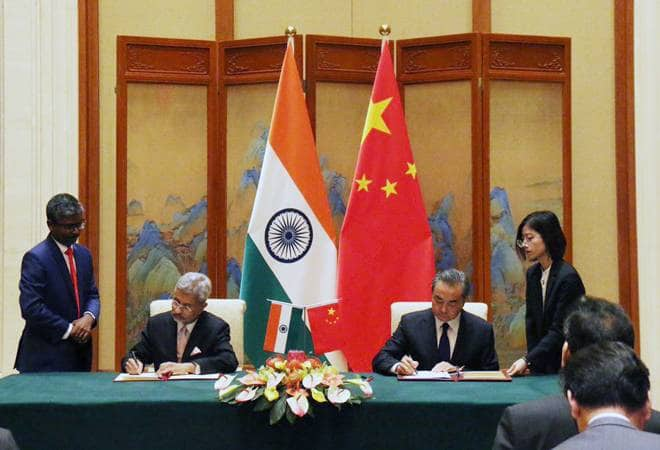
(TibetanReview.net, Aug13’19) – Despite China’s objections to India’s recent decision to bring the latter’s state of Jammu & Kashmir, especially the Ladakh region, under direct central rule, the two countries have on Aug 12 signed four Memorandums of Understanding (MoUs) and agreed to organise 100 activities in the coming months in the domain of film and broadcasting in bid to further strengthen the cultural and people-to-people ties between the two countries, reported freepressjournal.in Aug 13.
Apart from the news media, films constitute a major tool of China’s propaganda effort and it remains to be seen whether Beijing makes use of this deal to promote its doctored view of the Tibet question and the situation in the tightly controlled region under its rule.
The report said the four agreements were signed in Beijing following the second meeting of the India-China High-Level Mechanism (HLM) on Cultural and People-to-People Exchanges, chaired by India’s External Affairs Minister S Jaishankar and his Chinese counterpart Wang Yi.
The report said the two countries agreed to promote cultural exchanges for the preservation of intangible cultural heritage, organization of cultural activities and management of archaeological heritage sites. It remains to be seen whether this will include visits to India by Chinese “experts” on Tibet and Tibetan cultural troupes.
China made clear its concerns over the recent tensions between India and Pakistan and also conveyed its “principled position” on the issue of sovereignty, an apparent reference to its opposition to India’s decision on Ladakh, the report said. China’s grouse stems from the fact that India’s definition of Ladakh includes Aksai Chin which is under its control.
Also, during the joint press conference, the two leaders announced a range of new initiatives, including expanding facilities for Kailash Mansarovar pilgrims, the report said.
“Some suggestions were made by the Chinese side to expand Kailash Mansarovar Yatra and we are deeply appreciative of these initiatives,” Jaishankar was quoted as saying.
The two leaders discussed the full gamut of issues relating to the international situation, regional aspects and the bilateral relations including the visit of President Xi Jinping to India for the second informal summit later this year and celebrating the 70th anniversary of the establishment of diplomatic relations next year, the report said.
“As agreed by the leaders in Astana, differences should not become disputes. That is how India-China relations can remain a factor of stability in an uncertain world,” Jaishankar has said.
Later in the day, Jaishankar and Wang were stated to have jointly inaugurated the ‘India-China Film Week’, marking the commemoration of 100 activities that would be organised in the coming months in the domain of film and broadcasting.





